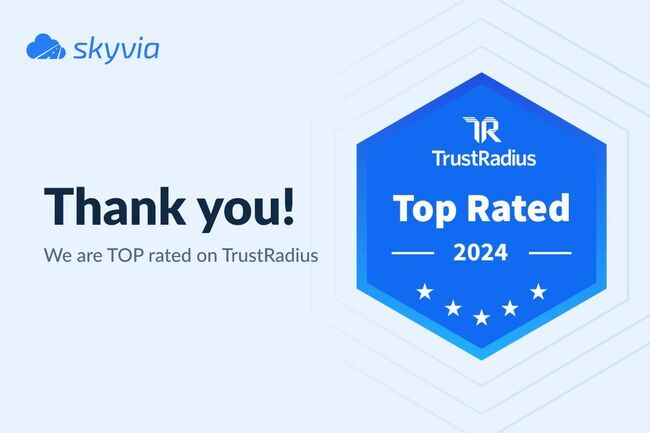The mortgage industry, traditionally rooted in face-to-face interactions and paper-heavy processes, has experienced a significant transformation over the past few years. As technology advances, mortgage businesses are finding new ways to enhance efficiency, improve customer experiences, and ultimately reshape the entire industry. But what exactly are these technological shifts, and how are they changing the landscape for lenders and borrowers alike? Let’s take a closer look at the top ways technology is revolutionizing mortgage businesses.
The Rise of Digital Mortgage Platforms
One of the most significant technological advancements in the mortgage industry is the emergence of digital mortgage platforms. These platforms streamline the application process, allowing borrowers to complete their entire mortgage journey online, from pre-qualification to closing. Gone are the days of endless paperwork, in-person meetings, and long waiting periods. Digital platforms integrate various tools, such as automated document verification, electronic signatures, and instant credit checks, making the process faster, more efficient, and more transparent.
For lenders, these platforms provide a centralized system that can manage everything from lead generation to underwriting. Furthermore, the data collected through these platforms can be used to improve decision-making and provide personalized mortgage solutions, making the entire process more customer-centric.
The Convenience of Online Mortgage Applications
Another game-changing development in the mortgage industry is the widespread adoption of online mortgage applications. With newer digital technology, applying for a mortgage has never been easier or more convenient. The benefits of an online mortgage application extend far beyond just convenience. These applications allow borrowers to complete the process at their own pace, from the comfort of their homes, without the pressure of in-person meetings.
The future of online mortgage applications looks even brighter, with potential advancements in artificial intelligence and machine learning poised to further enhance the user experience. These technologies could help in pre-populating application forms, predicting approval chances, and even offering real-time assistance through chatbots.
This level of convenience and personalization not only improves customer satisfaction but also attracts a broader range of potential borrowers, including tech-savvy millennials who expect digital solutions in all aspects of their lives. Lenders benefit from online mortgage applications as well. They can process applications faster, reduce overhead costs associated with physical branches, and reach a wider audience.
Advanced Multi-Channel Marketing Solutions
Marketing in the mortgage industry has also been revolutionized by technology, particularly through advanced marketing software like Jungo mortgage multi-channel marketing. In a competitive industry where reaching the right audience at the right time is crucial, such software offers a comprehensive solution for mortgage companies to engage with diverse potential customers across multiple channels.
Jungo’s platform allows mortgage businesses to automate their marketing campaigns, track their performance, and refine their strategies based on data-driven insights. For example, a mortgage company can create personalized email campaigns and even create a consistent brand presence online.
By leveraging data analytics, companies can also identify the most effective channels for their campaigns, optimizing their marketing efforts for better results. In an industry where trust and reliability are paramount, effective marketing can make a significant difference in a company’s success.
Enhanced Customer Experience With AI-Powered Chatbots
The use of artificial intelligence (AI) in the mortgage industry has introduced a new era of customer service, significantly enhancing the overall customer experience. AI-powered chatbots can now handle a wide range of tasks. This includes answering basic inquiries and guiding borrowers through the mortgage application process. These chatbots are accessible 24/7, and can offer immediate assistance and reduce the need for human intervention in many cases.
These chatbots also have the ability to provide personalized experiences. By analyzing customer data, these chatbots can tailor their responses to meet individual needs, offering relevant information and suggestions based on the borrower’s unique circumstances. This level of personalization improves customer satisfaction and of course increases the likelihood of converting inquiries into actual mortgage applications.
The Future of Blockchain in Mortgage Transactions
Blockchain technology, though still in its early stages within the mortgage industry, holds the potential to revolutionize the way transactions are conducted. At its core, blockchain offers a secure, transparent, and decentralized way to record transactions. This makes it an ideal solution for the mortgage industry, which has long been plagued by issues such as fraud, inefficiency, and lack of transparency.
One of the most promising applications of blockchain in the mortgage industry is the creation of smart contracts. These contracts have the agreement terms directly written into its code, and can automate many aspects of the mortgage process, from the transfer of property titles to the disbursement of funds.
Plus, blockchain can provide a single, immutable record of all transactions, making it easier for lenders, borrowers, and regulators to verify the authenticity of documents and the history of the property. This transparency can significantly reduce the time and cost associated with due diligence, making the entire process more efficient.






